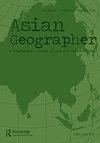地理学家眼中的历史气候战争关系
IF 2.2
Q2 GEOGRAPHY
引用次数: 5
摘要
摘要气候变化在历史上引发过战争吗?尽管越来越多的定量研究(特别是在地理学领域)说明了前工业化社会中气候战争的关系,但在这个问题上存在着相反的意见。这种相互矛盾的观点促使我们重新考虑气候战争关系是否可以被概念化为是/否的二分法。本文试图解决这个问题。我将首先概述地理学家定量研究的关键发现,这些研究证实了气候恶化在引发战争中的重要作用。然后,我将指出那些使气候战争关系的概念化复杂化的问题,表明这种关系不能被视为一个简单的是/否问题。最后,我将提出一种研究方法,可能有助于地理学家和历史学家之间进行富有成效的跨学科合作,以研究气候变化与历史战争之间的相互联系。我希望对气候战争关系的解释能够摆脱是/否的二分法,并彻底考虑战争和社会应对气候变化的多个维度。此外,地理和历史的优势可以结合起来,以丰富对历史上气候战争关系的理解。本文章由计算机程序翻译,如有差异,请以英文原文为准。
Historical climate-war nexus in the eyes of geographers
ABSTRACT Did climate change cause wars in history? While a growing number of quantitative studies (particularly in the field of geography) illustrate the climate-war nexus in pre-industrial societies, there are opposing opinions on the subject. Such conflicting views invite us to reconsider whether the climate-war nexus can be conceptualized as a yes/no dichotomy. This paper seeks to address this issue. I will first recapitulate the key findings of those quantitative studies of geographers that substantiate the significant role of climate deterioration in causing wars. Then I will pinpoint those issues that complicate the conceptualization of the climate-war nexus, indicating that the nexus cannot be taken as a simple yes/no question. Finally, I will propose a research approach that may facilitate a productive interdisciplinary collaboration, perhaps between geographers and historians, to conduct research on the interconnection between climate change and wars in history. I hope that the interpretation of the climate-war nexus can move away from a dichotomy of yes/no, and the multiple dimensions of wars and social resilience to climate change will be thoroughly considered. Also, the advantages of geography and history could be integrated to enrich understanding of the climate-war nexus in history.
求助全文
通过发布文献求助,成功后即可免费获取论文全文。
去求助
来源期刊

Asian Geographer
GEOGRAPHY-
CiteScore
3.30
自引率
0.00%
发文量
7
期刊介绍:
Asian Geographer disseminates knowledge about geographical problems and issues focusing on Asia and the Pacific Rim. Papers dealing with other regions should have a linkage to Asia and the Pacific Rim. Original and timely articles dealing with any field of physical or human geographical inquiries and methodologies will be considered for publication. We welcome, for example, submissions on people-environment interactions, urban and regional development, transport and large infrastructure, migration, natural disasters and their management, environment and energy issues. While the focus of the journal is placed on original research articles, review papers as well as viewpoints and research notes under the category of “Asian Geography in Brief” are also considered. Review papers should critically and constructively analyse the current state of understanding on geographical and planning topics in Asia. The ‘Asian Geography in Brief’ section welcomes submissions of applied geographical and planning research about Asia. The section aims to showcase (1) the diverse geography and planning of Asia; and (2) the diverse geographical and planning research about Asia. The journal will also publish special issues on particular themes or areas. Book reviews can be included from time to time.
 求助内容:
求助内容: 应助结果提醒方式:
应助结果提醒方式:


